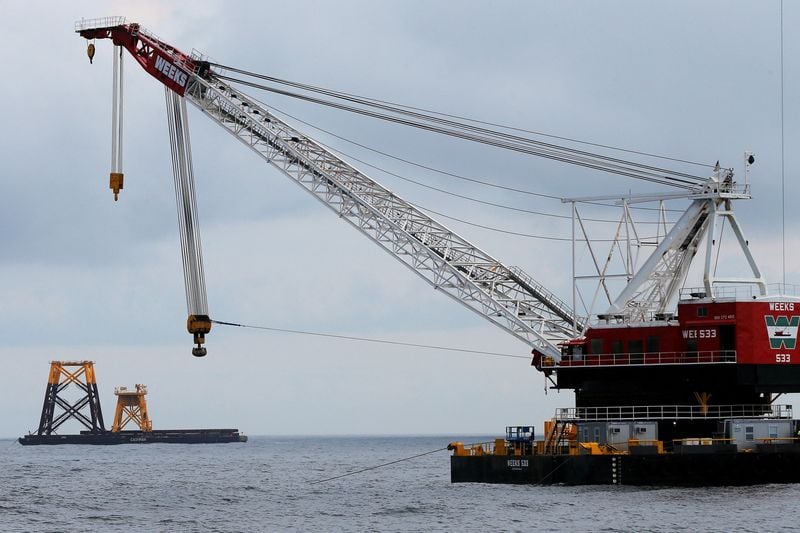
The battle over offshore wind projects along the Atlantic Coast is heating up, and New Jersey’s own Rep. Jeff Van Drew is leading the charge against them. Fresh off a hearing in Ocean City, Maryland, Van Drew didn’t mince words in a recent interview with Fox News. His message was loud and clear: these projects are bad news for the economy, public safety, and even your seafood dinner.
“It’s a bad deal for America,” he said. “It’s a bad deal for New Jersey.”
The hearing, hosted by Rep. Andy Harris from Maryland, brought together a group of concerned lawmakers from the region. Van Drew, representing Cape May, and Rep. Christopher Smith from Toms River, both Republicans, are at the forefront of this growing resistance. Their stance? Offshore wind might sound great in theory, but in practice, it’s a disaster waiting to happen.
For starters, Van Drew has serious concerns about the impact on New Jersey’s vital fishing industry. He warned that the installation of turbines could wreak havoc on the state’s seafood supply chain, harming fishermen and possibly contaminating the very fish that end up on our plates. And it’s not just about the fish—Van Drew is also worried about the environmental effects of turbine lubricants, which could pose a danger to marine life.
Here’s what he said:
The big takeaway is that there is nothing good about these projects, not one single thing. I’ve been involved in public policy and government for a lot of years as a state senator, assemblyman mayor, county commissioner. I’ve never seen a project so bad as these projects are. It’s going to hurt our supply chain of food. It’s going to hurt the fishermen. And we’re going to have, literally, it’s going to harm the seafood. It certainly is going to hurt the environment, the whales. They use lubricants in these things that can be dangerous. Again, a real problem. Hurt tourism, another issue. Every single thing that we see and we hear is bad. And you know what’s the worst of it? Your utility costs are going to go up, and not a little bit. That’s not just for people who live along the shoreline, it’s going to be for everybody. We’ve never seen these things hold up to hurricane force winds ever, because in Europe, they don’t get hurricanes. They get bad storms, but they don’t get hurricanes. Here’s the bottom line. The takeaway is lots of billionaires internationally are going to make a lot of money on this deal.
But that’s not all. Van Drew also highlighted a critical issue that many proponents of wind energy might overlook: hurricanes. While wind power has gained popularity in Europe, those installations haven’t had to face down the fury of an Atlantic hurricane. Van Drew argued that it’s only a matter of time before these turbines, sitting vulnerable in the path of nature’s most powerful storms, are put to the ultimate test.
Beyond environmental concerns, Van Drew painted a grim picture of what offshore wind could mean for everyday New Jerseyans. He warned that utility costs could skyrocket—not just for those living along the coast, but for everyone. This, he argued, would further strain a state already grappling with high living costs.
Adding to the controversy is the recent decision by Danish green power giant Ørsted to pull out of New Jersey’s wind projects. Despite the full backing of Democratic Governor Phil Murphy and a hefty dose of taxpayer funding, the company decided it wasn’t worth the risk. Van Drew sees this as proof that offshore wind is a “bad deal for America” and, more specifically, for New Jersey.
With lawmakers like Van Drew and Smith leading the charge, the future of offshore wind in New Jersey is anything but certain. As debates continue to swirl, the question remains: Is the push for green energy worth the potential risks? For now, it seems that the winds of opposition are blowing strong along the Jersey Shore.

